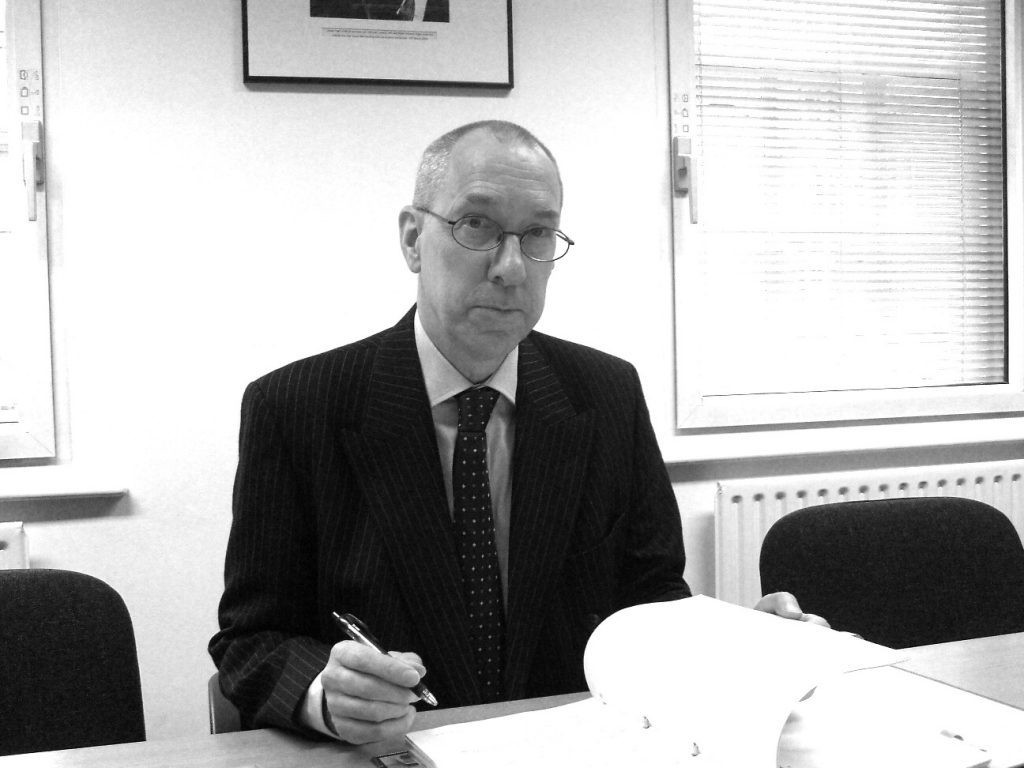A few months back there was some discussion around the level of service that legally aided clients could expect in the era of permanent cuts in the legal aid budget. Whilst the future may look bleak as further cuts are contemplated there is no doubt in my mind that there are still many dedicated solicitors and barristers who work extremely hard to provide their clients with a service every bit as good as they would if they were paid privately.
No one embarking on a career in legal aid work does it to get rich. Until recently you could at least make a reasonable living at it but if you wanted flash cars and big houses legal work was not where you wanted to be. Those who do legal aid work are generally determined to do their very best to protect the rights of their clients. Whether it’s in the police station helping a vulnerable person deal with hostile questions from a detective or a barrister working late into the night before trial because she has found a legal argument that might win the case, the motivation is not just our professionalism but also a desire to ensure that our clients get their constitutional right to a fair trial. The same applies to those in all other areas of legal aid work from housing to immigration and asylum.
Legal aid lawyers are passionate about people and passionate about justice. We do the job because we want to protect our clients’ interest and do our best to get them the right outcome. We do it because we know that legal aid lawyers can make a difference to our client’s lives. Saving an innocent person from wrongful conviction is a wonderful feeling. The same applies if we can prevent a tenant being wrongly evicted or a desperate asylum seeker from being deported. And even if we may not always win, we will make damn sure our clients get as fair a trial as we can manage to achieve.
That has never been easy and in many ways in has got harder to achieve. In my own field of criminal law where I have been in practice now for over 35 years I am acutely aware that almost the only changes made in the law during my career have been designed to increase the rate of conviction regardless of whether than puts more people in peril of being wrongfully convicted.
Moving in the wrong direction
Back in 1984 the Police & Criminal Evidence Act was passed. When it came into effect a year or two later it revolutionised practice, particularly in police stations. Almost at a stroke it ended the practice known as ‘verballing’ whereby police officers invented alleged ‘confessions’ on the part of suspects. Once interviews had to be taped and suspects given access to solicitors the opportunities for the police to fabricate confessions virtually disappeared. It was a major step forward in ensuring that suspects get due process of law, a fair trial.
But since then I can barely think of a single provision in any Act of Parliament that has been designed to strengthen the rights of suspects. Rather the moves have all been in the opposite direction. From removal of the right to jury trial, to removal of the right to challenge the composition of the jury, through abolition of the right to silence, the requirement to tell the prosecution in advance what the defence will be, the introduction of bad character evidence and changes to the hearsay rules and the endless possibilities for a jury to be invited to draw an adverse inference against an accused, the only purpose any of this could possibly have had has been to try to increase the rate of convictions. And if your try to increase the rate of convictions it is as inevitable as night following day that you increase the risk of some of those convictions being wrongful.
I can’t even blame one party more than the other for these measures. In fact Labour has been every bit as guilty of ignoring the rights of the accused as the Conservatives. It was Gordon Brown who first seriously contemplated the idea of locking people up for up to three months without charge and Labour who first thought about the idea of governments having total access to everyone’s personal communications, which makes it hard for them then to oppose what the present government have in mind.
There is no doubt that the last Labour government had seriously lost its bearings when it came to the rule of law, that vital bulwark against governments that want to accrue more power to themselves than is appropriate in a democracy.
But like many of my colleagues I do fear for the future of legal aid. The relentless cuts are already having an effect. The number of solicitors doing legal aid work has fallen and many barristers also appear to have switched to better paid work or otherwise given up. Student lawyers will shortly be clocking up debts of £90,000 by the time they qualify. It is asking a lot of such people to accept a training contract with a high street legal aid firm at £14,000 a year or a pupillage with a grant as low as £12,000 when, if they have the talent, they can get £40,000 or more from a magic circle law firm or commercial set of chambers.
I regularly meet many students who are clearly still motivated to go into legal aid work but I wonder how long it will be before this enthusiasm becomes a victim of the reality of a life of grinding debt. The number of pupillages is falling and already it is very hard in many chambers for a newly qualified barrister to make a living doing criminal work.
Market forces
In time this is bound to have an effect on the quality of the service that lay clients can expect. The government seem very keen for lawyers to accept that the rules of the market must apply to our trade as much as anywhere else. In which case why does the government not seem prepared to admit that paying Lidl prices is not going to get you Waitrose quality? People who shop at Lidl know what they are getting is of a lower standard but if price is the priority they are prepared to put up with that.
Why does anyone think the same won’t happen in legal services?
If you want to see what happens to the standard of legal services when rates of pay are cut you only have to look to the United States. In that country the most serious criminal cases, those involving capital murder are the worst paid. Whilst there have been some recent improvements there are many on death row today whose lawyers at trial were alcoholics, drug addicts, had previously been disbarred for misconduct, lacked experience of criminal cases and some who were so egregious they couldn’t even stay awake during their client’s capital trial! Shocking as this may sound, the reason is simple. The fees on offer have been so low that the only lawyers prepared to do the cases are those who can’t get other work.
The legal aid system is regarded by many as an essential aspect of the welfare system of which we are rightly proud. Attacks on this aspect of the welfare state are every bit as dangerous as attacks on welfare benefits and the health system and we should all be very concerned about what is happening to our right to proper representation before the courts.






